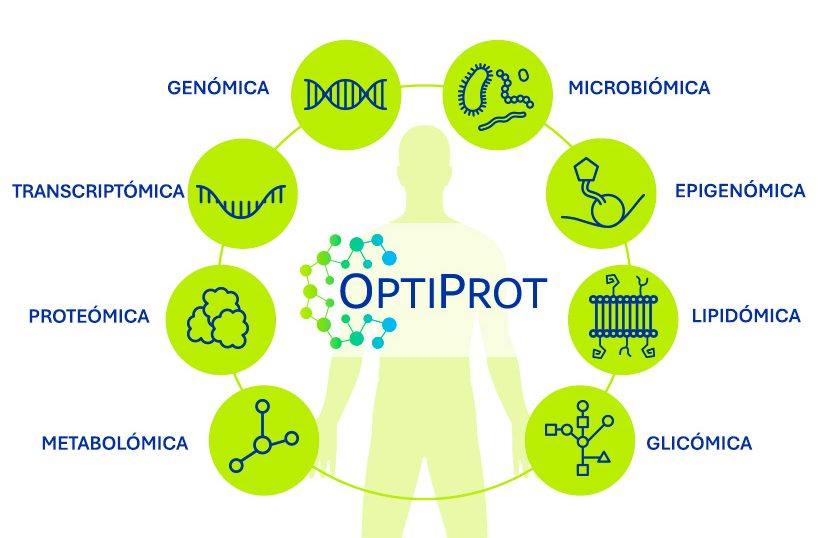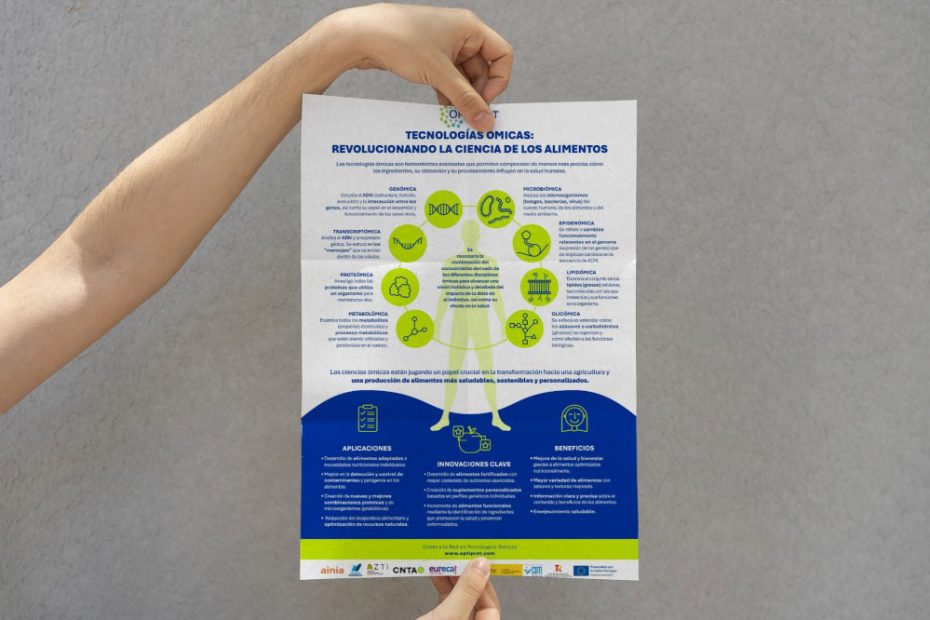Omics technologies are a set of advanced scientific tools that allow the study and analysis of the various molecular components of living organisms at a very deep level. Each type of omics technology focuses on a specific class of biomolecules, such as genes, proteins, metabolites and others. These technologies are essential for understanding how organisms function at the molecular level and how they interact with the environment, food and other external factors.
In other words, omics technologies are advanced tools that allow us to understand more precisely how ingredients, their procurement and processing influence human health.

The main omics technologies
Glycomics: Studies glycans (carbohydrates) and their influence on biological functions. Glycomics provides insight into how these complex sugars interact with the body and affect health.
Genomics: Focused on DNA, genomics explores the structure, function and evolution of genes, providing insight into their role in the development and functioning of organisms.
Transcriptomics: This technology examines RNA and gene expression, studying the “messages” generated in the body and helping to decipher the genetic language in our body’s response to different foods.
Proteomics: Focusing on the set of proteins present in an organism, proteomics allows the identification of key proteins involved in health and food metabolism.
Metabolomics: Analyzes metabolites and metabolic processes, providing critical information on how the body produces and uses molecules in response to food intake.
Microbiome: Studies microorganisms in the human body, food and the environment, contributing to the creation of probiotics and the study of how microorganisms affect our health.
Epigenomics: Explores functional changes in the genome that affect gene expression without modifying the DNA sequence. This technology allows us to understand how food and the environment can influence our genetics.
Lipidomics: Focused on cellular lipids, this discipline helps to understand the role of fats in the body and in the diet, revealing how they affect metabolism and health.


